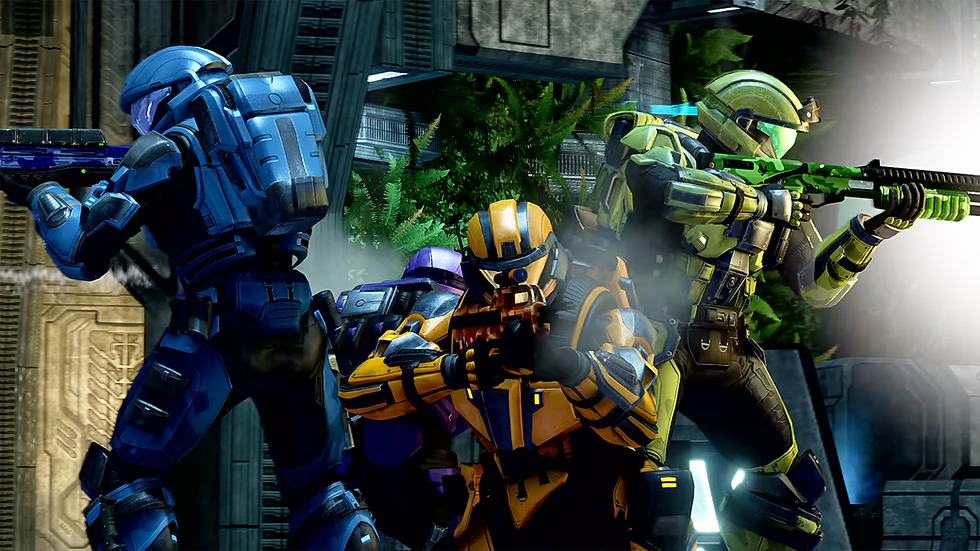What's the Difference? A Look at Remaster vs Remake in the Gaming Industry
- CaptainLansing

- Apr 10, 2025
- 4 min read
Updated: May 7, 2025

Remasters have been a staple in gaming in the past couple generations. With the stark lack of backwards compatibility with the recent big three systems, many developers have taken the opportunity to spice up their older titles in order to rerelease in a way to earn some extra profit. Remasters typically improve the graphics, potentially add some previous cut content, and sometimes add on some features to bring it up to modern day standards. While some touch ups and content refurbishment seem to be the basis for the remaster classification, there comes a point where the line between a remaster and a remake become a bit blurred, and what defines each may differ from person to person.
Remakes, while less common than remasters, are oftentimes treated as new games due to the changes they provide. Final Fantasy VII Remake, Dead Space Remake, and Person 3: Reload are recent, highly regarded remakes of beloved classics. What set these apart from typical remasters is the near redevelopment of each from the ground up. Voice lines rerecorded, new music produced, and the in the case of Final Fantasy VII, the gameplay style changed completely from turn based to a fully controllable action game. The games themselves have enough to be set apart from their original versions, for better or for worse in some scenarios.
Games that fall under the 'remake' moniker seem to be ones with decades worth of time between the original release and present day. With multiple generations typically passing between the releases, it makes sense to fully rebuild a game, sometimes to align more with the developers original vision, or to bring systems up to current standards, and give it a shiny coating of graphical fidelity. With the case of FF VII, the games original story is being stretched into three separate games, with dozens of hours worth of extra content in between.

The idea of spending upwards of $70 on a game that came out decades ago is a large reason why remakes are well crafted in the way they normally are, and boast their changes in order to draw in new and old players alike. Where the disparity lies between this and the recent trend of 'remastering' a game that is not even 5-10 years old comes mostly from Sony. Sony has released approximately six remasters for titles that were already readily accessible and graphically impressive enough for modern standards. Their most recent remaster announcement, which is for Days Gone, a game released in 2019, is another frankly unnecessary addition to a growingly saturated market of remasters.
A commonly shared issue between both remasters and remakes is that on certain instances, the 'touch ups' make a game worse than their original release. Games like Halo: Combat Evolved anniversary and Grand Theft Auto: Definitive Edition have their own issues not present in the original release, such as Halo: CEA getting rid of certain graphical ambiance and a shockingly ugly Master Chief model, or GTA: DE introducing a newsworthy number of issues in what should've been a simple graphics boost. For many, these 'remasters' are somehow the worst way to experience these titles, although they have a decade advantage in the field.
What also seems common amongst recent remasters and remakes is that they serve a 'purpose'. With examples such as Crysis and Dead Space, the remakes and remasters of said series are almost a gateway into them getting revisited and revived. Shortly after the release of the Crysis remastered trilogy, a long awaited sequel, Crysis 4, was finally announced. Whether or not the sales and reception of the remasters played a hand in this decision is unconfirmed, but the timing alone seems reason enough to say so. Dead Space (2023) was supposed to lead into a new title as well, but EA decided to uphold their rocky reputation and deny this outcome, citing their unrealistic sales expectations not being met.

When remakes and remasters serve a purpose, they can be incredibly well received and sometimes moreso than the originals. When it’s an obvious cash grab, it can sour a studio’s reputation and just end up with the opposite effect of its intention. But with classic games being harder and harder to access (through legal means), it’s hard to find a downside to a well done remaster. Maybe a game has a cult following who wishes there was a ‘better’ version, or maybe one that fixes some issues from the original, and that is where a good remake can really strike home. As long as it’s done right, these two will be sure fire ways to easily revisit old classics and bring older series into the modern limelight. I still remain hopeful some of my favorite series get remade, if not just a simple rerelease. And there are plenty of announced and leaked remakes/masters that I very much look forward to (KOTOR, please release one day). If they continue to bring in new fans to long forgotten gems, and revive once dormant franchises, I’m more than willing to accept dozens of new remakes if need be, other than whatever it is SONY is putting out.



last of us 2 remake is all i have to say